Jinyuan He
SafeMobile: Chain-level Jailbreak Detection and Automated Evaluation for Multimodal Mobile Agents
Jul 01, 2025Abstract:With the wide application of multimodal foundation models in intelligent agent systems, scenarios such as mobile device control, intelligent assistant interaction, and multimodal task execution are gradually relying on such large model-driven agents. However, the related systems are also increasingly exposed to potential jailbreak risks. Attackers may induce the agents to bypass the original behavioral constraints through specific inputs, and then trigger certain risky and sensitive operations, such as modifying settings, executing unauthorized commands, or impersonating user identities, which brings new challenges to system security. Existing security measures for intelligent agents still have limitations when facing complex interactions, especially in detecting potentially risky behaviors across multiple rounds of conversations or sequences of tasks. In addition, an efficient and consistent automated methodology to assist in assessing and determining the impact of such risks is currently lacking. This work explores the security issues surrounding mobile multimodal agents, attempts to construct a risk discrimination mechanism by incorporating behavioral sequence information, and designs an automated assisted assessment scheme based on a large language model. Through preliminary validation in several representative high-risk tasks, the results show that the method can improve the recognition of risky behaviors to some extent and assist in reducing the probability of agents being jailbroken. We hope that this study can provide some valuable references for the security risk modeling and protection of multimodal intelligent agent systems.
Elastically-Constrained Meta-Learner for Federated Learning
Jun 30, 2023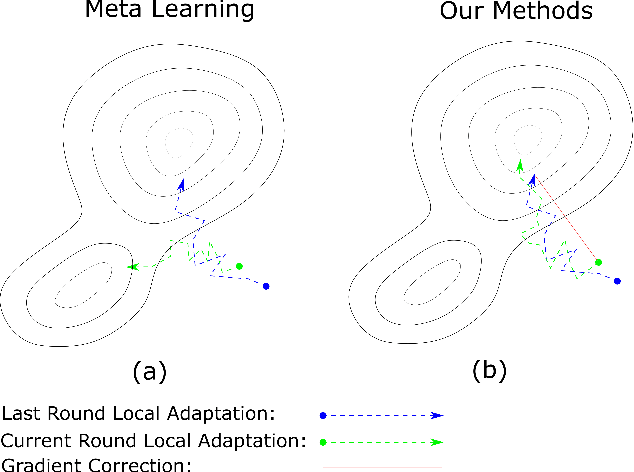

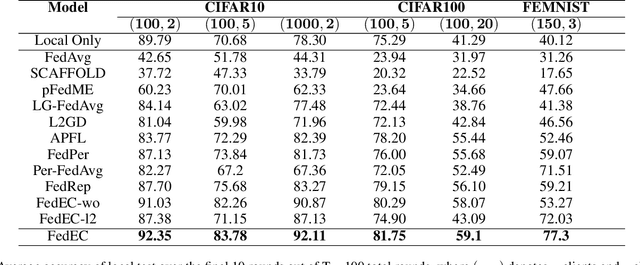
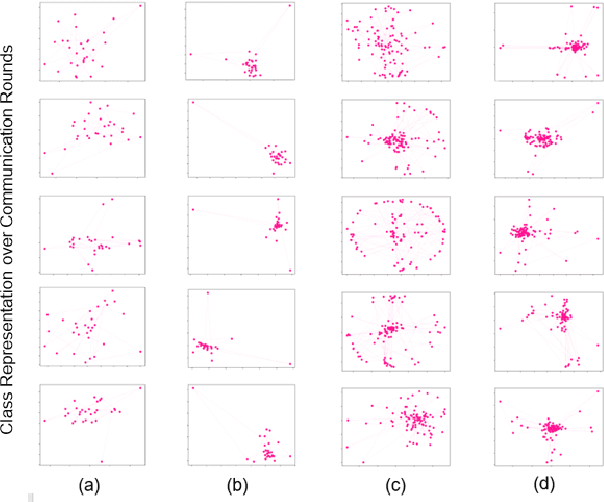
Abstract:Federated learning is an approach to collaboratively training machine learning models for multiple parties that prohibit data sharing. One of the challenges in federated learning is non-IID data between clients, as a single model can not fit the data distribution for all clients. Meta-learning, such as Per-FedAvg, is introduced to cope with the challenge. Meta-learning learns shared initial parameters for all clients. Each client employs gradient descent to adapt the initialization to local data distributions quickly to realize model personalization. However, due to non-convex loss function and randomness of sampling update, meta-learning approaches have unstable goals in local adaptation for the same client. This fluctuation in different adaptation directions hinders the convergence in meta-learning. To overcome this challenge, we use the historical local adapted model to restrict the direction of the inner loop and propose an elastic-constrained method. As a result, the current round inner loop keeps historical goals and adapts to better solutions. Experiments show our method boosts meta-learning convergence and improves personalization without additional calculation and communication. Our method achieved SOTA on all metrics in three public datasets.
A New Non-Negative Matrix Co-Factorisation Approach for Noisy Neonatal Chest Sound Separation
Sep 04, 2021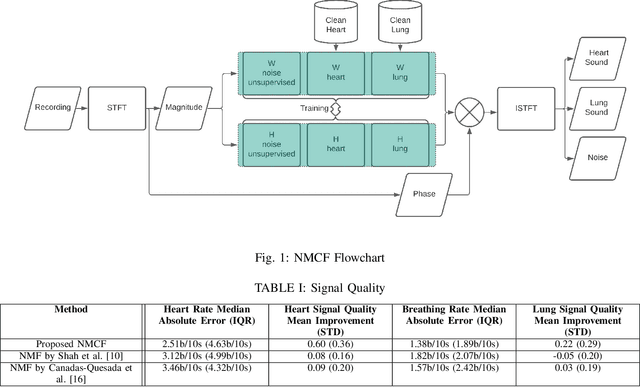
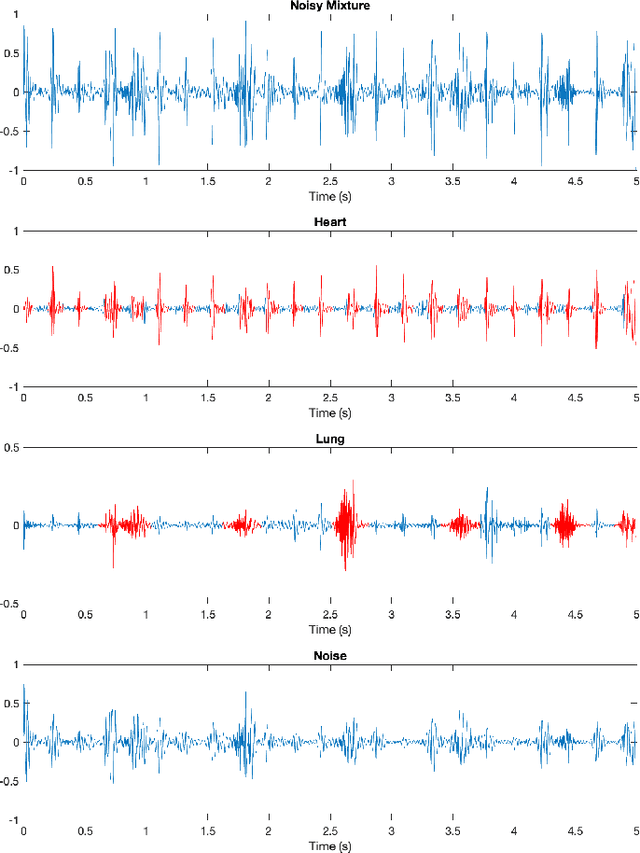

Abstract:Obtaining high-quality heart and lung sounds enables clinicians to accurately assess a newborn's cardio-respiratory health and provide timely care. However, noisy chest sound recordings are common, hindering timely and accurate assessment. A new Non-negative Matrix Co-Factorisation-based approach is proposed to separate noisy chest sound recordings into heart, lung, and noise components to address this problem. This method is achieved through training with 20 high-quality heart and lung sounds, in parallel with separating the sounds of the noisy recording. The method was tested on 68 10-second noisy recordings containing both heart and lung sounds and compared to the current state of the art Non-negative Matrix Factorisation methods. Results show significant improvements in heart and lung sound quality scores respectively, and improved accuracy of 3.6bpm and 1.2bpm in heart and breathing rate estimation respectively, when compared to existing methods.
Neonatal Bowel Sound Detection Using Convolutional Neural Network and Laplace Hidden Semi-Markov Model
Aug 17, 2021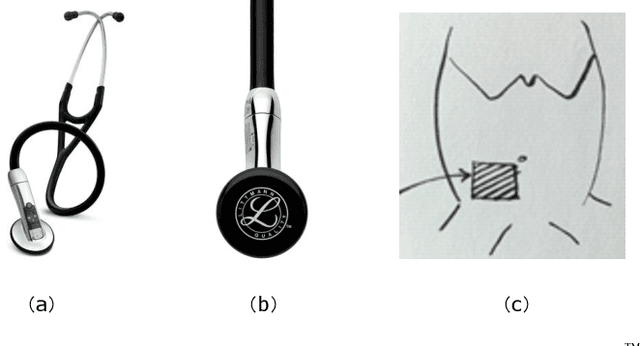
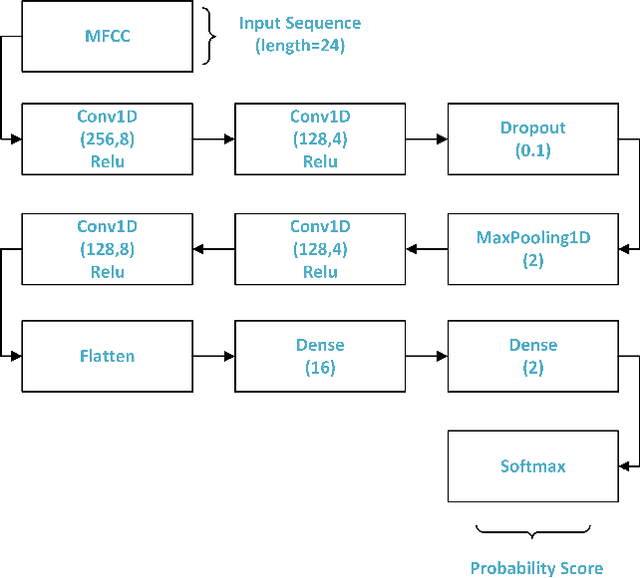
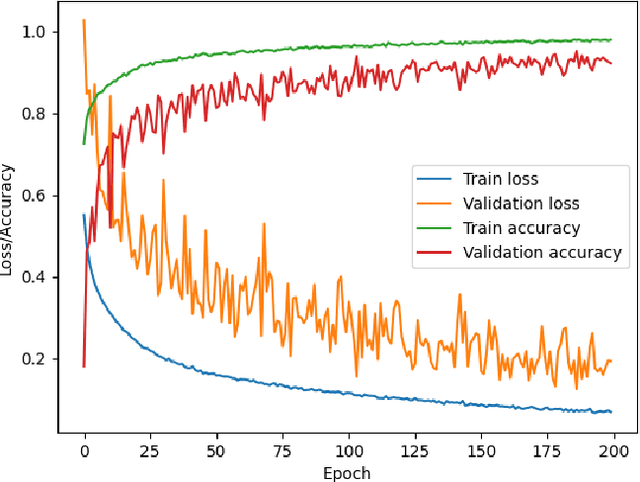
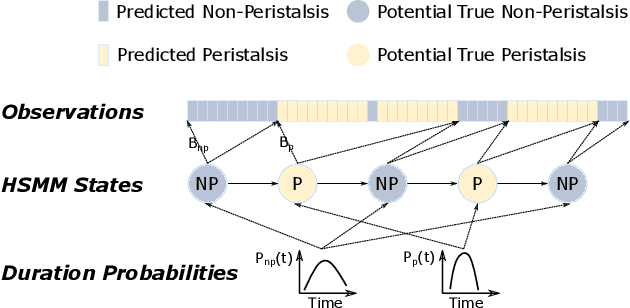
Abstract:Abdominal auscultation is a convenient, safe and inexpensive method to assess bowel conditions, which is essential in neonatal care. It helps early detection of neonatal bowel dysfunctions and allows timely intervention. This paper presents a neonatal bowel sound detection method to assist the auscultation. Specifically, a Convolutional Neural Network (CNN) is proposed to classify peristalsis and non-peristalsis sounds. The classification is then optimized using a Laplace Hidden Semi-Markov Model (HSMM). The proposed method is validated on abdominal sounds from 49 newborn infants admitted to our tertiary Neonatal Intensive Care Unit (NICU). The results show that the method can effectively detect bowel sounds with accuracy and area under curve (AUC) score being 89.81% and 83.96% respectively, outperforming 13 baseline methods. Furthermore, the proposed Laplace HSMM refinement strategy is proven capable to enhance other bowel sound detection models. The outcomes of this work have the potential to facilitate future telehealth applications for neonatal care. The source code of our work can be found at: https://bitbucket.org/chirudeakin/neonatal-bowel-sound-classification/
 Add to Chrome
Add to Chrome Add to Firefox
Add to Firefox Add to Edge
Add to Edge